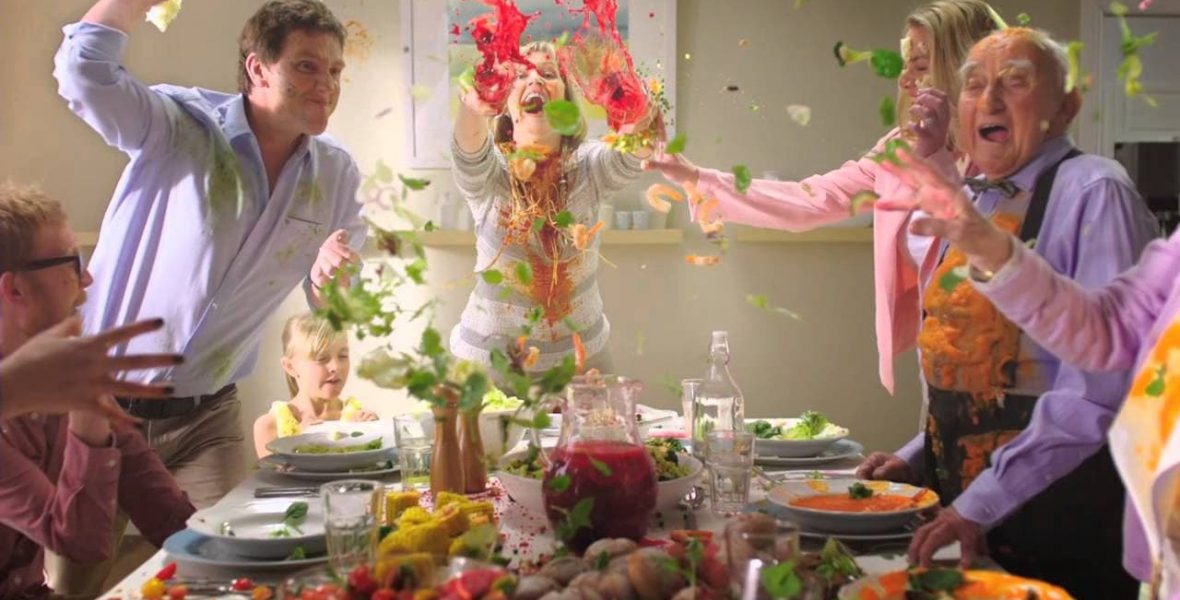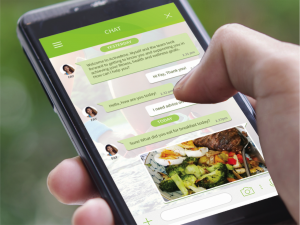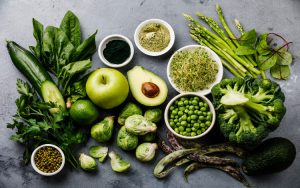Imagine if you were told that you should only ever eat chocolate and drink coffee to lose weight. Or perhaps all your health woes would be fixed by eating purple foods only. Would you question the advice? We see BAD nutrition advice spread like its gospel, and often followed with blind faith. We get it – everyone would love a quick fix to weight loss or an indulgent answer to optimal health and so we are ALL easily persuaded by marketing hype at some stage. BUT, remember it’s ok to question random advice you hear from friends, family and the internet. If you’re unsure about the information – ask yourself how qualified the person giving you advice is…a dietitian or nutritionist are good places to start.
We asked some of our Active8me community about the worst nutrition advice they received before starting with Active8me. We all quickly learned that what they’ve been told in the past is not always true.
Have you heard any of these nutrition myths before?
Nutrition myth 1 – Don’t eat anything white
Abbey M. says “Not that long before I joined Active8me I was told – don’t eat anything white. I did question my friend giving the advice and she said her cousin tried this and they lost heaps of weight”.
It is hard to find where this weird advice originated. The best we can determine is that it was guidance based on cutting out highly processed and/ or high carb foods such as white flour, bread, rice and refined sugar. On that basis, it’s certainly better to have the ‘less white’ varieties such as whole wheat flours, breads, brown rice and avoid added sugars. But to cut out white foods means missing out on many highly nutritious foods such as garlic, mushrooms, yoghurt, cauliflower…the list goes on. Categorically cutting any food from your diet based on its colour has no scientific basis and is in no way beneficial for your health.
Nutrition myth 2: You need to regularly juice cleanse or detox
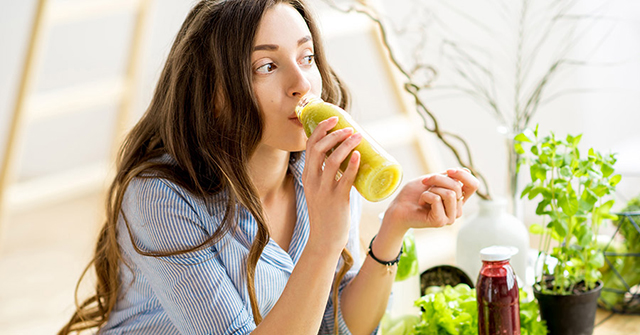
Li-an W. was advised by her yoga instructor, “You need to regularly ‘juice cleanse’ or detox to make sure that your body resets”.
Those colourful, expensive juice bottles look healthy don’t they? And if all the Hollywood stars and trend-obsessed influencers do detoxes then surely a detox must be good for you, right?!
Hmmm, think again. Some detoxes will encourage you to eat more of beneficial nutritious foods, whilst at the same time cutting out less desirable parts of your diet – like caffeine, alcohol, and processed foods. However, detoxes often move you away from eating a balanced variety of food, which can lead to nutritional deficiencies. Because juices have removed the fibre from fruits and vegetables, the result is you’re drinking A LOT of sugar. This increased sugar intake can lead to negative side-effects like feeling weak, sluggish and dizzy, rather than boosted benefits.
Ultimately your body has an inbuilt, highly efficient detox system of its own -your kidneys and liver. To ensure your body is doing its best ‘detox’ effort, aim for a balanced diet of carbohydrates, proteins and fats and avoid processed foods as often as possible.
Nutrition myth 3: Superfoods are the answer to.. anything!
Jasmine L. laughs as she recalls “Superfoods are the answer to…you can basically insert anything here. I had a friend tell me that eating a certain berry all the time would stop me ever getting sick. Needless to say, I had a cold within weeks”.
‘Superfoods’ have become associated with being able to prevent and cure diseases and give you ultimate health. While there is no ideal food that is that ‘super’ there are plenty of benefits to including certain foods into a diet already balanced with nutrients, vitamins and minerals. History has shown us that deficiencies in certain nutrients, think scurvy (lack of Vitamin C) in early sailors or goitre across Asia (Iodine deficiency) can be extremely dangerous across populations. So, be wary! A superfood is simply a way to incorporate a ‘good’ source of a certain nutrient and that’s it’s super power.
Nutrition myth 4: Replace sugar with artificial sweetener
Tom S. says, “My mum is always telling me that if I just replaced sugar with artificial sweetener, I would lose my belly fat.”
Artificial sweeteners are nefarious chemicals! While they have no calories, they still provide your tastebuds and your brain with that sweet ‘hit’. This instant injection of sweet stimulates the cycle of your body expecting calories, yet not receiving them. Therefore, your craving for the actual sugar may intensify, eventually overpowering your will.
In addition, sugar substitutes such as sorbitol and mannitol are not fully absorbed by the body. They ferment in the intestinal tract, causing gas to build up resulting in dreaded bloating!
Nutrition myth 5: You can eat what you want as long as you exercise
James M. recalls “As a kid I could literally eat whatever I wanted and never seemed to gain weight. But as I’ve gotten older and been told I can eat what I want as long as I exercise – I’ve realised that I’m living proof that it just doesn’t work that way”.
The simple truth here is that you can’t out-exercise a bad diet. What you eat is mostly responsible for your weight. And the simple science of weight loss remains the same – the calories you take in needs to be less than the calories that you burn. However, it is important to note that not all calories were created equal. Again, getting your fuel or calorie intake, from a balance of macronutrients is far more beneficial than from a chocolate bar or serves of cendol. Plus, think of the many hours you’d need to spend exercising to burn off the ‘eat whatever you want’ foods.

Nutrition myth 6: Gluten-free is healthier
Mary J. says “My doctor told my mother that being gluten-free is healthier”.
The trendy rise of everything being ‘gluten-free’ is responsible for the important complex carbohydrates of wholegrain bread and pasta becoming shunned. We agree that only consuming highly processed white bread is definitely NOT healthy. However, the wholegrain versions of bread and pasta can serve as a good staple in your diet. Unless you’re diagnosed with a condition that requires a gluten-free diet, such as celiac disease or gluten intolerance, then it serves no purpose to abstain from it. People taking advice from doctors to be on a gluten free diet have often been diagnosed with such intolerances. It is advice for them personally, not broad advice.
It’s good to remember that a gluten-free diet is not a guarantee for weight loss as you might end up replacing the gluten with other high calorie substitutes, usually at a higher cost too! So, don’t be sucked in by hype – carbs in the form of gluten rich whole grain breads and pastas are not the enemy.
Nutrition myth 7: Eating fat will make you fat
Rebecca L. says “My grandma used to swat my hand when I reached for extra pork fat, telling me eating fat will make you fat!”
For many years FAT has been a dirty word. But that only seems fair as eating fat makes you fat, right?! Well, it’s time to think again.
Fat was systematically banished from our diets through misguided medical advice of the 1980s. This was considered the answer to ‘fixing’ our issue of expanding waist lines and fatal heart troubles. But in fact, following this regime hasn’t helped the growing obesity problems or our cardiovascular disease. There’s now a lot of research suggesting that we got a lot wrong about fat!
Trans fats, mono, poly, saturated, unsaturated, omega this, omega that… the list of ways to describe types of fats goes on. So, it is easy to be confused. The fact is not all fat is bad. In fact, it is an essential macronutrient. But like all food groups the amount and type of fat you eat is important – not only for your waistline but your overall health. Eating too much of anything will contribute to getting fat! Check out the infographic below on choosing beneficial fats.
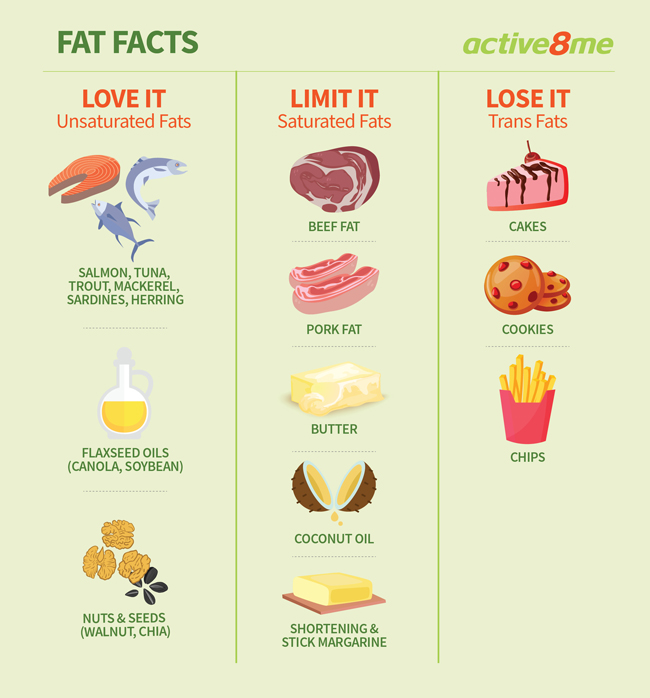
Nutrition myth 8: Just cut out…
Emelie J., Active8me nutritionist says, “Any diet that cuts out an entire food group/ macronutrient is the most common nutrition myth I come across”.
Having a balanced diet, where you enjoy an adequate proportion of carbohydrates, protein and fats is far more beneficial for your health than limiting one of these macronutrients. Plus, if you incorporate consistent nutritious, balanced eating into your life, you’re able to have treats without ruining your efforts. This is difficult to justify if you are on a restrictive diet, which is generally the most common approach someone follows for weight loss. The side effect of these diets can include nutrition deficiencies, lack of energy, fatigue, foggy feelings and inability to concentrate properly.
Nutrition doesn’t need to be complicated
If you want all of your nutrition needs simplified, then try one of our Active8me programs! They have dietician designed meal plans and recipes that provide you with the right proportion of nutrients. The delicious array of meals can be customised to your tastes and even incorporates advice about getting the right balance of foods when eating out. We’ve covered all your nutrition needs. Plus there’s more. Workouts, mindset lessons, tracking and a whole lot more. It’s like having a dietician, personal trainer and life coach in your pocket. Check out the Active8me app today.

